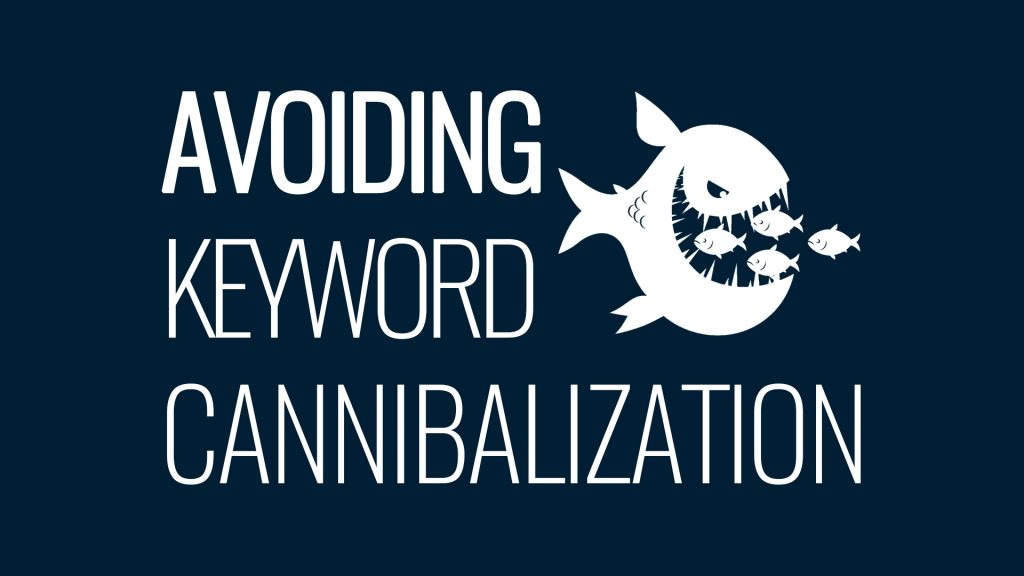Have you ever wondered what will happen if several pages are optimized for the same keywords within a website? The assumption that it has a positive effect on positions in search is fundamentally wrong. In 99% of cases, the effect of cannibalizing keywords will take place. What is the negative effect of cannibalization on SEO and how to avoid it from the very beginning? Let’s find the answers together.
What Is Keyword Cannibalization?
In SEO, the query cannibalization means using the same keywords to optimize the content on multiple pages within the same site. Why cannibalization?This word perfectly describes the essence of the situation when the keywords seem to “eat each other” in terms of influence on search engine promotion. Having found several pages relevant to the same query, search engines most often put only one of them in their search results. The effect of cannibalization would most likely occur if the content plan was created randomly. It usually leads to the following consequences:
1) The Worsening of Relevance
This is the consequence of the repeated use of the same keywords since the search engine will not know which one is the most relevant and worthy of display in the SERP. As a result, in the search results, there will be only one of the pages related to the request and not always the most suitable for displaying.
2) Losing the Weight of Pages
If several pages optimized for the same keywords are involved in the internal linking, the weight will be redistributed between them, which could worsen the importance of one relevant page. The same applies to external links: it is much more efficient to send 30 links to the same page than redistribute them between several pages.
3) Damaging the Value of Content
The decreasing value is a natural process, which is based on the “disappointment” in the website content from both the search engines and its visitors. The presence of several pages with similar information on the site significantly reduces its reputation.
4) Deterioration of Behavioral Indicators
This is usually a result of the previous three points:
- If the SERP does not display the most relevant pages on the same request, it is natural that it will have a significantly higher bounce rate;
- A similar story occurs with visitors who have come to pages that fall under the effect of cannibalizing keywords;
- For visitors who find several pages within the website with similar information, its credibility will be significantly reduced, especially if this is a repeated occurrence.
However, you should not be afraid of the above-mentioned situations because they usually can be fixed by an experienced SEO specialist. On the sites with a small number of pages, everything is easily checked by analyzing the content plan and identifying duplicate keywords.

Preventing the Effect of Cannibalizing Queries
Of course, it’s better to prevent the cannibalization of keywords than to fix an existing problem. To do this, it’s enough to correctly compose a semantic core and redistribute keywords across pages at the planning stage of creating a website. In addition, during the filling the site with content, it is worth paying special attention to the following points:
- All the materials should be clearly structured and distributed into sections;
- Each main request must have only one page;
- Title and description should not be repeated within the site.
If you already have a website with cannibalized keywords, you should proceed to the stage of cleaning the site from this effect. And here's what you can do:
Delete those pages that are less valuable;
Rewrite content on the secondary pages for the other keys;
Eliminate the duplication of title and description;
If it is not possible to perform the previous procedures, set up a redirection from less important pages to the most valuable, using 301 redirects.
In the case of online stores, it will be more difficult, but there are also some tricks. In order to eliminate or at least reduce the effect of cannibalization on such web resources, you can add their vendor codes to the same type of product names. Such a trick will help to increase their uniqueness.
In Conclusion
As you can see, query cannibalization is a rather serious problem that can spoil the reputation and results of website promotion. In a common situation, search engines can even punish the website with more serious sanctions than a decrease in positions.
Therefore, we advise you to be very careful and engage in the distribution of the keywords even before the creation of the site. In this case, problems with pages optimized for the same requests should not appear. If the cannibalization of keywords already exists, you need to get rid of it urgently, otherwise, you can waste your energy and finances and not achieve success in promoting a web resource.
 Members Area
Members Area




